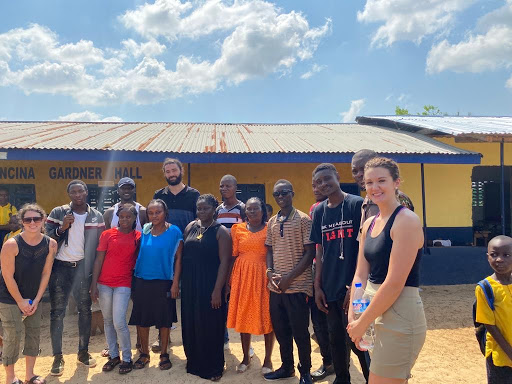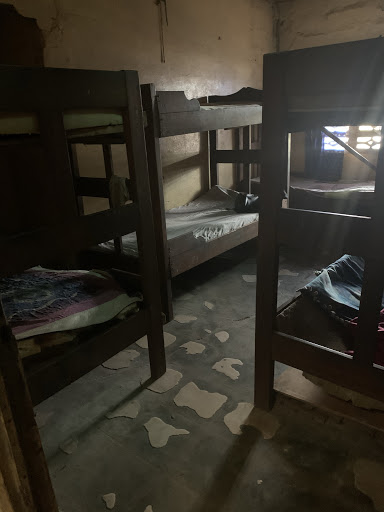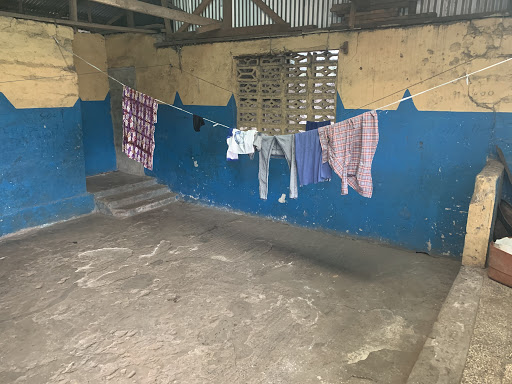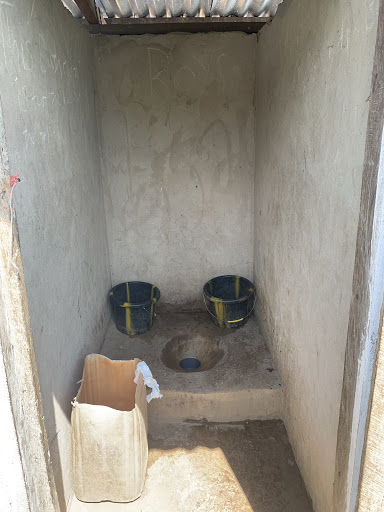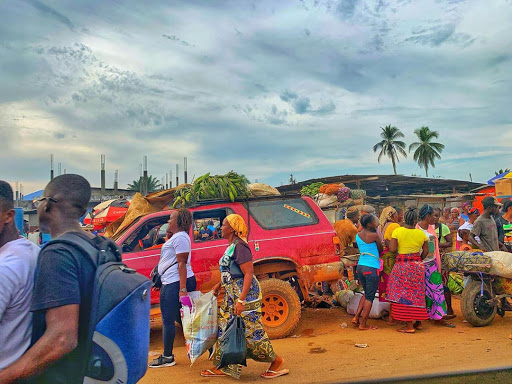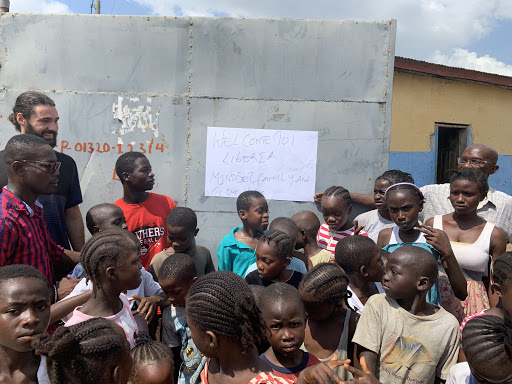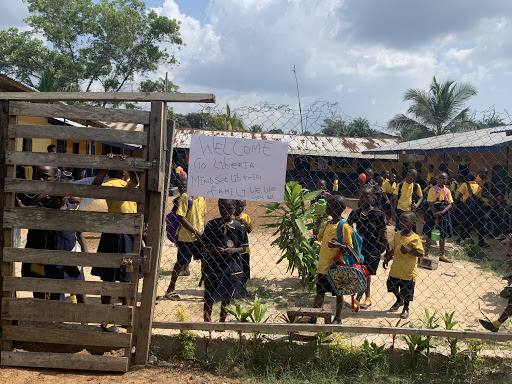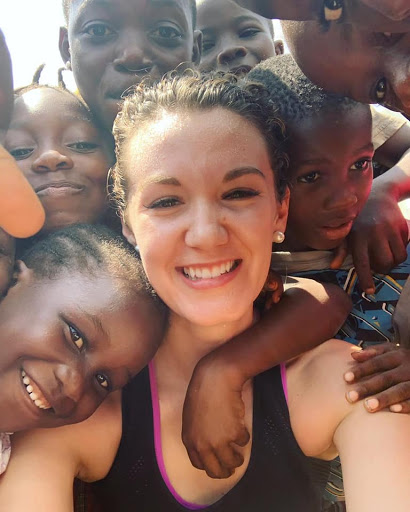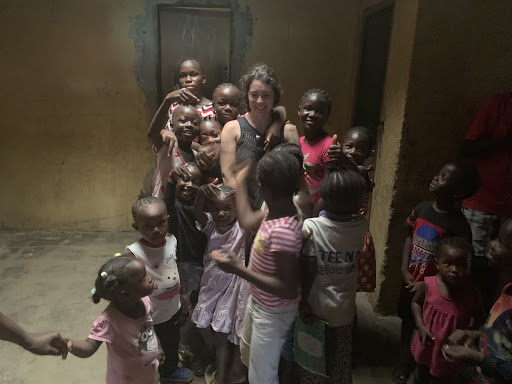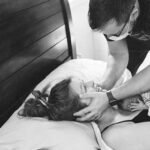This is a recent story about a woman’s trip to Liberia, West Africa. It was her first time visiting for longer than a week and gives an exclusive look into what the experience revealed for her and the nonprofit organization that she works with
Story by Sabrena Snow
Do you remember your first play date or sleepover as a child? Do you remember going to someone else’s house that had a pool, playset, or room that was cooler than yours, wishing you had one of those at home? We seem to remember all of the cool gadgets or toys and forget the times when we visited a friend that actually had what we did, or even less. This comparison of “things” is something we recognize at a certain age due to how we were raised or how society valued materialism. I vividly remember my first sleepover with someone who wasn’t a member of my family. I remember walking into their house and seeing how different their kitchen looked, how they decorated the bedrooms, and realized how different their family was than mine.
Going to Liberia for an extended stay felt kind of like this for me except it was on a whole new level. As an adult and nonprofit board member, I did my best to push any premeditated thoughts aside. I looked forward to the experiences we were preparing our hearts for and turned off the comparison portion of my brain to allow myself to be as present as possible. The purpose of our trip to West Africa, more specifically Liberia, was to visit several schools/orphanages on our radar, and decide whether or not they would be the right fit for a partnership. The organization that I am speaking of as the “we” in this piece is Mindset Liberia.
Mindset Liberia was founded in 2018 by my husband Sam Killen, and my older brother Brian- David Snow. Their vision for the nonprofit was to keep the future of the Liberian people in their own hands, by providing them with the means to build and take control of their own healthy, productive, sustainable communities. Mindset Liberia’s mission is to improve the quality of life and future prospects of the Liberian people, by first addressing their immediate needs and then establishing sustainable development practices for long term community growth and prosperity.
This trip was crucial for our organization because it was the next step in our plan of choosing appropriate partners for programs that sought growth and longevity. Where the process can become difficult is assuming we, as an organization, already know or understand the immediate needs of a community without actually being there physically to put ourselves in their shoes.
Our first of many meetings was with an orphanage called Child Survival located in Paynesville, Liberia a bustling community close to Monrovia, the capital city. The director, caregivers, and children were extremely welcoming as we arrived and toured their facilities. They were eager to show us where they slept, ate their meals, and held classes each day. This was the tough part for me.
Thinking back to how I grew up, and seeing how drastically different it was from Child Survival broke my heart. As a kid, I remember asking for updated décor for my room or a new, more comfortable bed to sleep in and my parents working their butts off to make it a reality for me. But these kids didn’t have that, they had bunk beds they had to share with cushions that could barely fit in the bed frame as mattresses. They had nothing in the rooms where they slept that looked decorative or as if it belonged to them.
The room that was shown to us as their dining hall, had zero tables or chairs and was actually being used, at that moment, to dry laundry.
Their bathrooms were outside the house in a small enclosed area and required them to fetch their own water to use.
Their school house was an open room that was separated by hand-made wooden dividers, and had a roof that leaked every time it rained. Since the government no longer provides subsidies or assistance to orphanages in Liberia, Child Survival survives solely on donations from NGOs and what little they can get from the community. As you can imagine, this puts everyone in a bind because the kids are counting on the caregivers and director for their next meal, and the director is counting on connections or relationships with others to make ends meet.
My first thought was to try and figure out how we could immediately solve all of their problems, but I quickly remembered to take a step back and think about the long-term goal of our visit, growth and sustainability. To me, the immediate needs were obvious but we asked the director, caregivers, and children countless questions and surveyed every ounce of the facility until we got a better understanding of how the orphanage operated on a daily basis. Our objective was to facilitate long term opportunities geared towards maximizing readily available resources. In other words, the orphanage had land, access to a well, and teens who recently completed an NGO sponsored agricultural trade school. However, there seemed to be no actionable strategy or support to help the orphanage leverage the knowledge and skill sets acquired.
After spending a considerable amount of time learning from the children and caregivers, our intention was to find ways to leverage our access to external resources- promoting sustainability and longevity. The realty was, unless this organization had a plan to bring more money in, growth was highly unlikely. As you can imagine sitting down and hearing the director talk about their day-to-day life was important for us to understand if a partnership was possible. Did the director have a vision for how to feed, cloth, and educate these kids with less support each year? Did he see the orphanage as an organization that could also support the community’s needs or as an establishment of dwindling resources? It wasn’t easy asking these questions, and it wasn’t comfortable discussing this amongst the group, but we weren’t there to be in our comfort zones.
As the trip progressed we visited one more orphanage, and two more schools. Spending time with the kids and adults in this community showed us how difficult it was to make ends meet, even for the everyday locals. The government was not paying their staff below senators and officials, (including police men and women, yikes!!) and the banks were completely out of money with no chance of new currency being printed. Being exposed to the typical day-to-day activities allowed us to see how crucial it was that we didn’t just assume the needs of the communities we were wishing to partner with/serve.
As a group, we agreed to take as much time as necessary, for the vetting process, this meant revisiting tough conversations and going back to the schools several times to ask more questions and understand more perspectives. Of course, we wanted to help each and every school or organization that we visited, but we knew that it would only be prosperous if we partnered with those who sought growth. This is how I came to answer the question “How was your trip to Liberia?” and why I responded with “eye- opening” and “enlightening”.
How often do we look at a situation and think we know what someone else needs? From the outside looking in, or across the ocean, we simply have our own narrative or preconception of their lives. As an organization we chose to spend a month, during the holiday season, to personally see, speak with, and listen to the people we envisioned supporting. We left our comfort zones to better understand their practices and experience their actuality. This, we understood, was the most influential decision in our vetting process because it revealed the true deprivation of the organizations.
Fast forward to the application process of the trip. After over a year of initial research, months of vetting/ ground work, and tough conversations, Mindset Liberia made the decision to partner with a school and orphanage that shares our vision for growth in education, communal involvement and facilitating a mindset of sustainability.
With the help of our community in the U.S. and our partners on the ground, we are currently seeking to gather resources in the ongoing development of two programs. Both initiatives give the partnering school or orphanage the opportunity to provide substance to their neighbors that can eventually be monetized to support themselves and their community.
I am so proud of Mindset Liberia and the efforts we are directing to provide the support we have been envisioning since day one. It has only been four months since we returned, and I am already looking back at the discomfort, and uneasiness appreciating what it taught me. Growth only happens outside of your comfort zone, and the application of growth only happens when you have the best understanding of how impactful the growth can be.
Follow their journey on: Facebook, Instagram and Website



